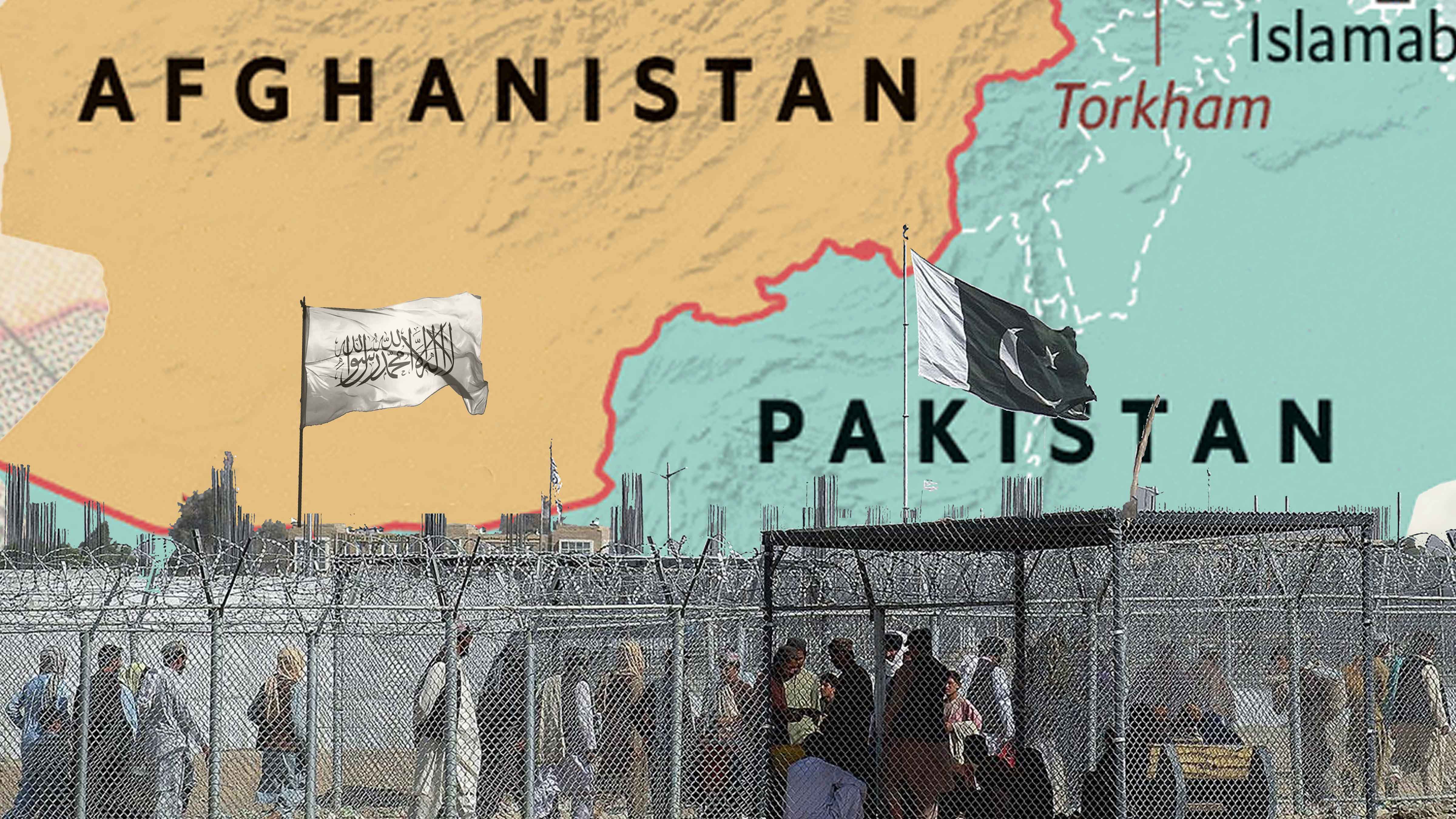
Imad Abbas

February 19, 2026
By | Imad Abbas

Cross-border tensions between Afghanistan and Pakistan have escalated into a recurring pattern of confrontations between the two countries in recent years.
The latest incident on August 12, 2024, involved an intense border clash between Pakistani forces and the Taliban, leading to the shutdown of the vital Torkham-Jalalabad highway.
According to Pakistani officials, the skirmish began when they demanded that the Afghan side halt construction on disputed land near the border. The exchange of fire left two Pakistani Frontier Corps (FC) personnel critically injured and reportedly caused civilian casualties on the Afghan side.
This recent incident follows another exchange of fire on July 19, 2024, at the Kunar/Bajaur/Dir borders, which lasted a day. As reported by The Khorasan Diary (TKD), the incident resulted in the loss of one Pakistani soldier's life and critical injuries to another.
According to data compiled by TKD, the recent clash marks the 26th recorded incident of direct border skirmishes between Afghanistan and Pakistan, resulting in casualties on both sides of the border, since the Taliban coming into power.
Since 2021, Pakistan and Afghanistan have been caught in a protracted and never-ending cycle of border disputes, geopolitical upheavals, and security issues interspersed by brief intervals of collaboration.
Nevertheless, the dramatic withdrawal of forces from Afghanistan in 2021 and the subsequent triumph of the Afghan Taliban were seen as a turning point for Pakistan's geo-strategic and geo-economic interests.
In an interview with Pakistan’s national Television in September 2021 the Afghan Taliban spokesperson, Zabihullah Mujahid, said, “Afghanistan wants good relations with the international community and to expand trade and economic ties while hoping that our neighboring countries will continue to extend support.”
Contrary to Mujahid’s statement, on December 23, 2021, Afghan soldiers opened fire and disrupted an ongoing security fence that was installed by the Pakistani state. The next day this conflagration transcended into a clash and both sides actively fired at one another, resulting in the injury of an Afghan citizen.
Fast-forward to July 2024, issues on the border related to trade and security continue. Interim Deputy Foreign Minister of Afghan Taliban, Abbas Stanekzai in February 2024 while speaking at a gathering in Logar, has expressed his reservations regarding the non-recognition of the border line between Afghanistan and Pakistan. Whereas, on the security side, the cross-border militancy and attacks have unprecedentedly soared to an all-time high.
According to the President of the Chaman Chamber of Commerce, Daroo Khan Achakzai, “These ongoing disputes have indeed impacted the border trade between the two countries”. Further he stated that “Afghanistan is the biggest market for Pakistan exports, however, when any border disturbance arises, we often give Afghanistan an opportunity to trade with other nations.”
This bypassing of trade, Achakzai said, comes at the expense of Pakistan. He further stated that India becomes the biggest beneficiary of the border disputes between Pakistan and Afghanistan adding that “India is increasing its work on the Chabahar port where it is creating facilitation for the Afghan traders” so that they can pivot from Pakistan. Therefore, instead of creating facilitation and regularization of the trade, these persistent border confrontations are giving India an opportunity to bypass Pakistan and trade directly with Afghanistan.
Previously, under the dispensation of former Afghan president, Ashraf Ghani, although Kabul’s political relations with Islamabad were tense, it never transcended into affecting the bilateral relations.
Achakzai further added, "During the rule of Ashraf Ghani and Hamid Karzai, bilateral relations between the two states peaked at $3 billion."
The majority of the exports to Afghanistan included edible food items such as fruits and nuts, vegetables, cotton, iron and steel. This exponential growth in the trade volume was largely due to the efforts of the Ashraf Ghani-led regime.
After assuming the office, Ashraf Ghani wanted to strengthen the stalked ties with Pakistan. For this to happen, he at first denied the request from India to visit the country to enhance the strategic cooperation between the two states. Meanwhile he visited Pakistan during this time.
As a result of these efforts, the trade volume rose between the both countries. Consequently, to sum it up, the first period of Ashraf Ghani was marked by an era of cooperation and mutual respect between both the states.
However, since the arrival of Taliban because of these persistent border confrontations and skirmishes, the volume of bilateral trade between the two states has plummeted to its lowest ebb. According to Ijaz Khan Afridi, Vice President Sarhad Chamber of Commerce and Industries, “the trajectory of trade has now been reversed between the two states”. According to him, “While previously it was Pakistan that exported the majority of goods and services to Afghanistan, following the Afghan Taliban's arrival, it is now Afghanistan that is exporting more."
Estimates provided by the Sarhad Chamber of Commerce and Industries show that exports of Pakistan plummeted from $1,018 million in 2021 to $972 million in 2023. While on the other hand, the imports rose from $577 million to $893 million. These figures clearly depict the changing trajectories of the bilateral trade between the two states.
Recently at the Torkham border, it was observed that more than 400 cargo trucks were parked near the border due to the border confrontation. Majority of these goods from Pakistan's side included raw and perishable goods. Therefore, the persistent closures resulted in the rotting of these goods with no benefit for Pakistan.
Waiting to Cross: Trucks loaded with goods bound for Afghanistan form a lengthy queue on the Torkham-Jalalabad highway. (Image Source: The Khorasan Diary)
The most affected by these border skirmishes and subsequent border closures are the local traders and people. According to Ibrahim Shinwari, a trader, “Even a small dispute on the border either between the security personnel or local traders results in the closure of the borders between the two countries.”
The local traders are the first to suffer from these dynamics. Since most exports include edible goods and fruits, frequent border delays result in the goods rotting or transport being delayed. As a result, in both cases, traders bear the brunt of these issues, Shinwari told TKD.
Border management has become a new bone of contention between the two states. During the last few months, both the states have implemented strict border visa restrictions and tariffs on each other that have drastically impacted the diplomatic relations.
“The Taliban has tightened restrictions on passports in response to concerns about people leaving Afghanistan. On the other side, import duties from Pakistan have also increased as a reaction to the Taliban's policy measures. This action-reaction approach between the two countries has directly impacted our trade dynamics,” Shinwari lamented.
It is vital for both countries to take stock of these policy measures and devise strategies that could enhance the relations between the two states.
According to Achakzai, “traders do not have any concerns regarding whosoever is in policy making, as they are only concerned about the facilitation measures” so that any external actors are not given any opportunity to bypass Pakistan.
“To gain access to the markets of Central Asia” according to Achakzai “it is vital for both the countries to create a wall between the politics and economy” so that one area’s complexities should not have any impact on the other.